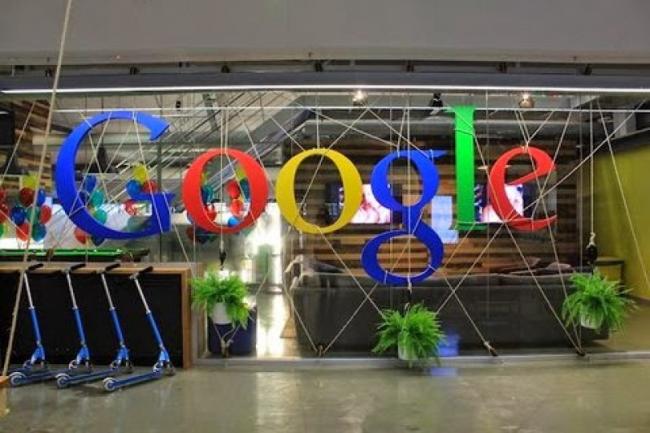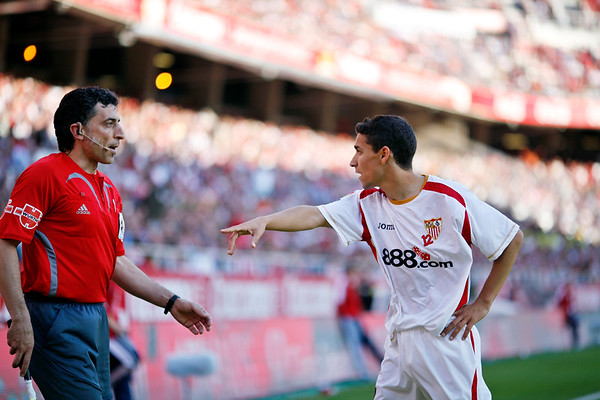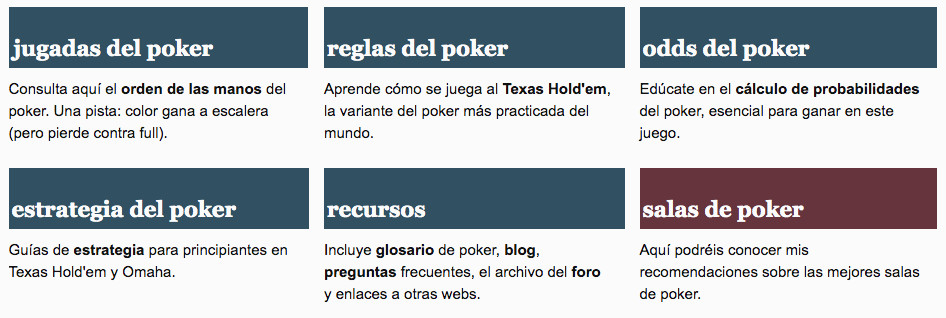The evident saturation of the advertising of sports betting operators in specialized sports media, verified in the retransmission of football matches and in advertising in stadiums and on sports club kits, has a clear precedent in another "field battle "capital for the sector: Google.
In this second article about SEO we will explain how the most important search engine in the world became the advertising channel in which the companies of the Gaming Industry have also deployed their entire promotional arsenal.
We will first explain how, since the dawn of the internet, online advertising has counted on Google as its most precious form of investment in advertising. And later we will remember the different strategies and ways in which it has been carried out.
-
Internet: sales channel and consumer platform
Although in the middle of 2020 we are all aware that a large part of the sales of large companies are concentrated in electronic commerce, in the Online Gaming Industry this is the case from the very origin of each and every one of the operators that have been joining this market, even long before national regulations. And for this reason, achieving a good position against the competition was, is and will be the key to success. And on the internet, positioning is almost synonymous with Google.
The main reason behind this is the duality offered by the online channel; where the internet is not only the communication channel to make itself known to the target audience but also the platform itself where the activity offered is consumed (poker, casino, bingo, sports betting ...).
In this context, given all the promotion strategies that have been tested in the last three decades of full Online Gaming activity, the struggle to occupy the top positions in Google searches is the one that has been infallible at all times.
-
First stage: banners and emerging rivalry on Google
With the arrival of the first gaming operators, back in the year 2000, advertising in the form of a static banner or pop-up window on any portal that could attract traffic was a way of guaranteeing the arrival of traffic to the newly launched web pages of the gaming operators. Little by little, as the profile of the average player of each of the products was being defined (mainly poker, casino and sports betting), the marketing specialists of these companies tried to place those ads in the media most akin to the "buyer. desired person "or target audience.
But obviously, even before Google made the jump to the Stock Market and became the standard-bearer of the internet technology boom, there was already extreme evidence of the importance of appearing among the first options in the queries made by users in the seeker. In fact, even very early on, they also began to compete in the ads that appeared as results in the search engine when the user searched for certain keywords.
But even without the security and confidence that regulated gambling markets would give, the main operators that took the top positions in Google did not generate much confidence in a Spanish public that saw how the online casinos with more visibility in Google did not even offer their product in language Spanish, in addition to not having payment methods to be familiar with and only showing licenses from jurisdictions that did not generate great security such as Cyprus, Isle of Mann or Antigua and Barbuda ...
It would not be until brands like
BetandWin or
Miapuesta popularized products such as betting or poker in our country through a huge investment in advertising on and off the internet, when we can speak of the beginning of the era of online gambling.
-
The specialized media appear
It is before this dilemma, the appearance of those first operators with large companies behind and their visibility in traditional advertising, makes it when online marketing comes to have a necessary role.
At the same time that 888.com sponsored Sevilla FC, betandwin and miapuesta began to occupy huge advertising spaces in the press and on online portals, specialized web pages were born: poker news portals, betting forums ... in addition to all the general online media that expanded its content offering with gaming sections.
It was also the era of blogs, which, powered by affiliate agreements, made it easy for anyone to bring players to the operators in exchange for a monetary reward; in any case, the affiliates had to either be well positioned in Google or provide training or quality content to the user.
-
The Golden Age of Affiliate Networks
In this era of content generation, without even the proliferation of audiovisual as today, the major players in the Gaming Industry were still very present in Google, although they were online companies and brands that had specialized in this field, such as EuropaCasino or little known those that led the rankings in search engines.
At that moment, operators realize that they can trust a new class of partners, affiliates, who in the form of web page networks supported by domains related to questions and searches (reglasdepoker.es, Forodepoker.com , aprenderpoker.es ...), began to receive much more traffic than the large portals and poker schools.
It was certainly a time when Google considered key domains: having a website called rulesdelpoker.com and that it was optimized at the SEO level served to -with the support of other websites deriving traffic to it- capitalize on the majority of the the searches related to knowing the rules of poker. Something that guaranteed visits, not only quantitatively but qualitatively: from people interested in knowing the rules of poker.
For many years (2008-2012), especially prior to regulation, these affiliates generated 50% of the acquisition of gaming operators, especially in poker and online casino. While the bets still resisted and lived mostly from the large advertising campaigns of the best-known operators nationally and internationally.
-
Review websites, odds and bonus comparators
-
As an evolution of the affiliation model, and to compete with those web page networks that monopolized the majority of traffic generated by searches for keywords about gambling on Google, different business models were created at this time (2005-2010) in the form of Web.
One to which the search engine itself gave more importance were the review pages, where basically the content that was offered was summaries and descriptions of the main characteristics of the existing game operators. From these directories, through the use of links with an affiliation code, it was possible to derive the traffic that arrived at the operators' websites, which obtained player registrations while the affiliate obtained a percentage of the future performance of the player in the operator.
In those years, bond comparators, bookmaker odds comparators and review pages, served so that information from several operators could be given from a single portal; something that Google would gradually try to reward, although in those first attempts it became an excellent way for poker players to monetize their knowledge and through the creation of blogs and small web pages, these new affiliates were able to compete in a market still with great potential.
A constant, especially since 2008-2009, is Google's attempt to do two things: that its results in the first positions provide useful information to the user and that -in addition- many companies that want to appear in those privileged positions and cannot do so through natural positioning , pay for your ads.
To achieve this, constant modifications have been made "of its algorithm", making the quality of the content to be prioritized as the main variable when it comes to positioning. Logically, "quality" is something subjective in most cases, but taking to the extreme the maxim "content is king" and progressively "relevant content is king", it has certainly reached a situation like the current one in which SEO truly involves offering relevant and well-structured content, far from what the first affiliates of the Gaming Industry that we discussed in the previous section were good at. They achieved great results by creating content that in the eyes of Google was synonymous with relevant (meta keywords, headlines, meta descriptions, use of bold, internal links ...) but it was difficult to get other websites and users to consider them completely relevant.
That is why the majority of web pages that before the regulation occupied the top positions in google for basic searches ("how to play roulette", "what is a freeroll", "poker rules" ...) over time have totally disappeared; While original and useful content for almost fifteen years (such as Álex Caputo's blog and poker forum poquer.com.es are still well positioned.
-
The operator becomes the protagonist: content marketing
With the arrival of the regulation processes of the gaming sector in the first European countries, operators change their strategy and start to consider Google as well as a gateway for players, as a way to reinforce or make their brand known. With the opening to advertising in mass media, a new battle is being fought to be well positioned in Google.
In this way, operators leave behind practices such as "cybersquatting", buying domains similar to the name of competitors in order to receive users who were looking for information from that other operator; For example, an operator called RedPoker bought a domain called 88.com to try to capture traffic that should in theory go to 888.com
In this way, the operators concentrated on content marketing, abandoning that war of organic positioning with questionable techniques in the hands of the more and more people and companies dedicated to affiliation. In any case, with time and the arrival of the Regulation in Spain (2012), neither review websites nor content website networks were able to maintain their dominance in the top positions of Google, leaving operators the monopoly of Google, going on to invest directly in specialized local agencies and - as we have said - improve their content in addition to building a natural link network, based on factors such as the reliability and popularity of external websites that point to their site.
-
Current status: the role of social networks
Extreme competition is still a feature of the fight for top positions on Google today. As we have said, the own content and the support of agencies dedicated to the search for high quality links is, together with the hard work of highly professional SEO departments, the only way in which large operators try to achieve visibility on Google; at a time when large television campaigns were very effective in attracting players to gaming portals, but which seem less and less profitable due to their enormous price.
The reliability and popularity of web pages and their synergy with social networks are current trends, so for example inbound links from social network platforms is an obligation, while at the beginning of SEO, social network platforms such as Facebook and Twitter still they did not have much specific gravity.
Previous article:
PART I - Introduction to positioning in Google as a marketing strategy
Next article:
PART III - Will GOOGLE be the great beneficiary of the cut in advertising for private online gambling? (COMING SOON)
18+ | Juegoseguro.es – Jugarbien.es





